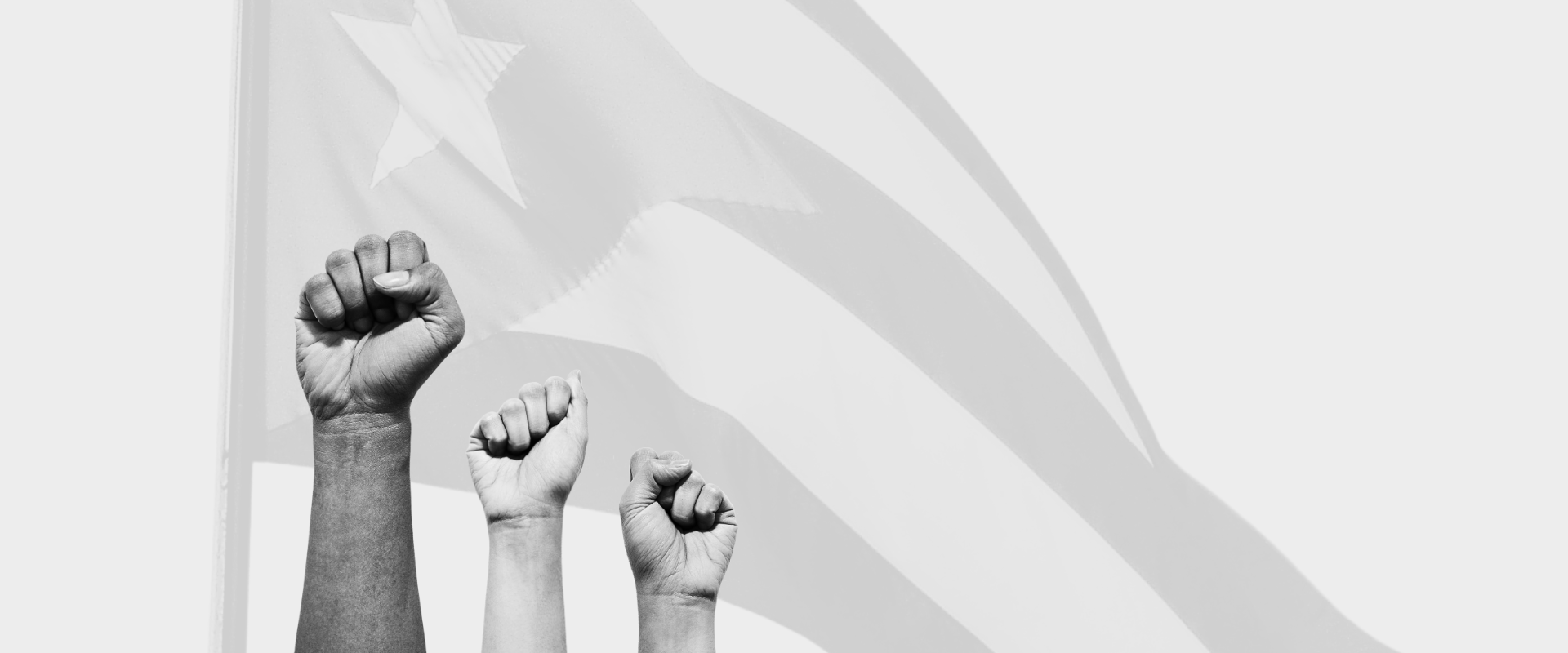Cuba violates human rights, we demand an end to repression!
One week after several protests were registered in the provinces of Santiago de Cuba, Granma and Matanzas, Race and Equality demands that the human rights of those who take to the streets to demand them be recognized.

Washington D.C., March 26, 2024. – On March 17 and 18, 2024, the social networks of international and civil society organizations that monitor the social, political and economic crisis in Cuba were flooded with images of the island, showing people from the provinces of Santiago de Cuba, Granma and Matanzas, shouting: “Current and food”, “homeland and life”, “freedom”, “no to violence”, “down with Diaz-Canel”, among other phrases.
The demonstrations originated in response to blackouts, lack of food and, in general, to the complex situation in the country. As a result of these events, 10 people were arbitrarily detained, according to the organization Justicia 11J, which also documented Internet outages, and cases of violence and repression exercised by Cuban authorities against the people who came out to protest.
One week after these peaceful protests took place, the Institute on Race, Equality and Human Rights (Race and Equality) reiterates that the Cuban government systematically violates the human rights of those who reside on the island.
After the massive demonstrations of July 11 and 12, 2021, also known as 11J, in which thousands of people took to the streets and were arbitrarily detained (and more than 700 are still deprived of their freedom, according to Justicia 11J), other protests have taken place, such as the one in August 2022 in Nuevitas, in the province of Camagüey, which left 14 men and women in prison; or the one in Caimanera, in Guantánamo, which left six people in jail.
“During the protests of 11J, in those of Nuevitas, Caimanera and now in those of March 17 and 18, 2024, the Cuban people have demanded the same things: full respect for civil rights, restoration of electricity, food and, in general, improvement of the political, social and economic situation in Cuba. However, Cuban authorities punish protesters with imprisonment, repress activists, artists and independent journalists, and limit the exercise of the rights to freedom of expression and association. We demand an end to violence against those calling for change in Cuba,” says Christina Fetterhoff, director of Race and Equality Programs.
From the Institute we call on the Cuban authorities to recognize the human rights of those who participate in peaceful protests. We demand that the repression cease, and we ask the international community to follow up and continue to denounce the violations of rights that occur daily in this country.

